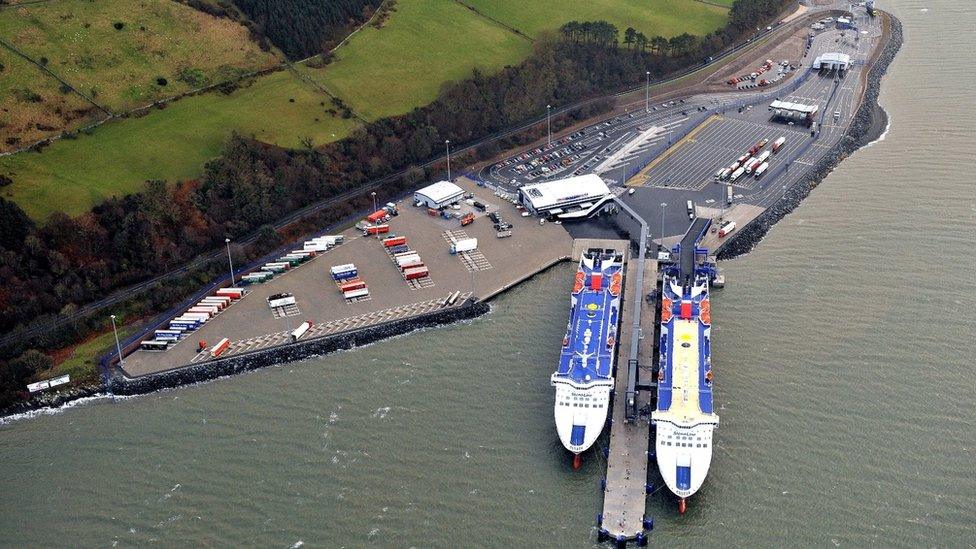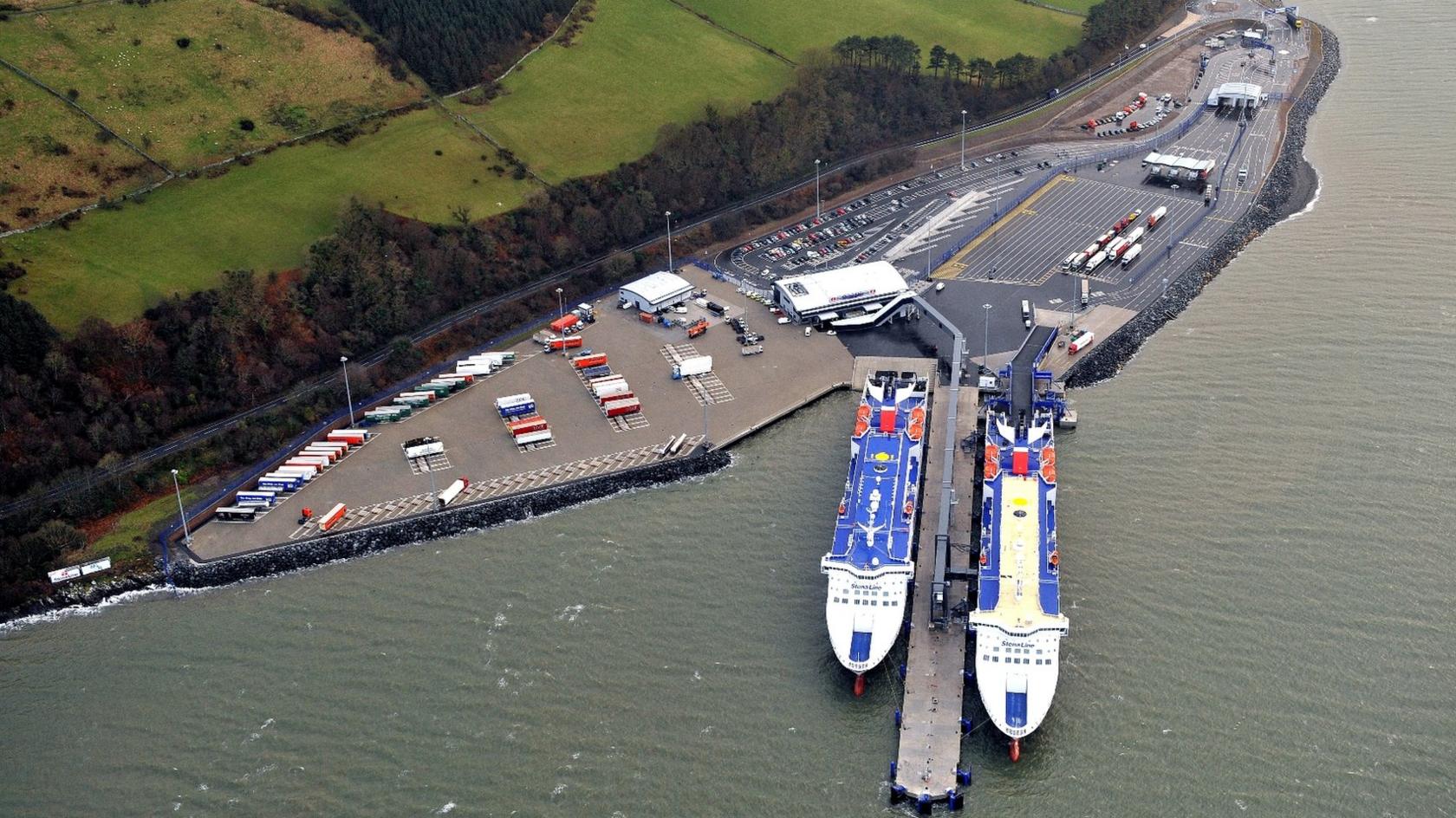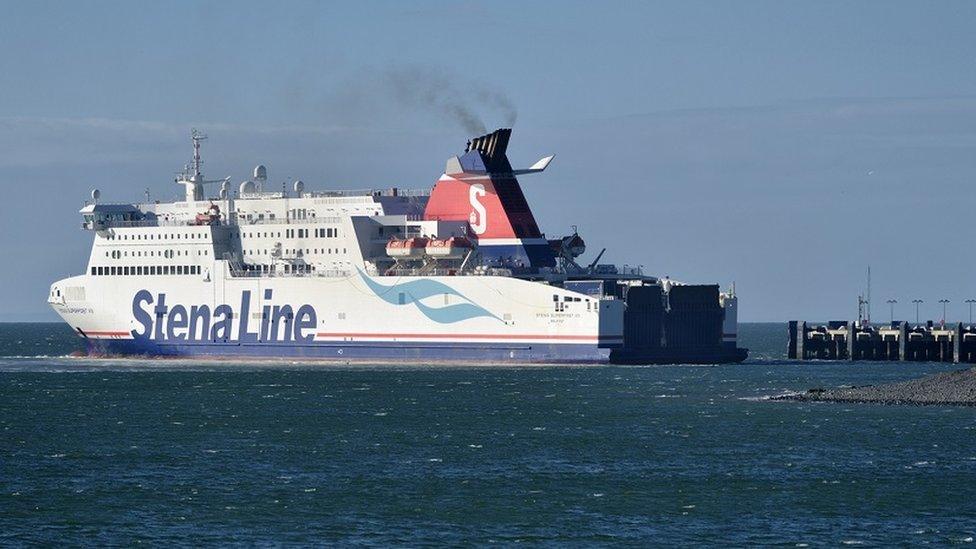Cairnryan border control post work paused over post-Brexit 'uncertainties'
- Published

Cairnryan is one of a number of sites where a control post is being established
The Scottish government has paused work on the creation of a new border control post (BCP) at Cairnryan after Brexit.
The facility would allow the inspection of goods coming from the Republic of Ireland and the wider European Union via Northern Ireland.
However, in light of "major uncertainties" over funding, the Scottish government said it would halt work until "receiving clarity".
The introduction of those checks will now not begin until next year.
Following Brexit, goods entering the UK from the EU are subject to the same border entry requirement and controls as goods from the rest of the world.
As a result, BCPs - at which imported goods are subject to physical inspections - are being established across the UK.
'Financial position'
Rural affairs secretary Mairi Gougeon said work had started last autumn to build one at Cairnryan.
However, she said that in recent months the Scottish government had sought assurances that funding for the facility would come from the UK government, but they had not been provided.
"With some major uncertainties to be resolved that are not within the control of the Scottish government, we have made the decision to pause elements of this project until we are in a position to proceed with confidence in the requirements and the financial position," she said.
"We will continue to engage with all UK government departments to ensure that the development of Cairnryan BCP can resume at pace in due course, but we need to have clarity on this.
"We have advised Dumfries and Galloway Council of the situation and will continue to work closely with them and engage with the local community in due course."
Supply pressures
The delay in introducing post-Brexit checks has been blamed on Covid disruption and pressure on global supply chains.
Measures which were expected to come in next month will now be introduced in January and July next year.
Paymaster General Penny Mordaunt told MPs that the requirement to pre-notify British officials about agricultural and food imports from the EU would now start on 1 January next year, rather than on 1 October this year.
The requirement for EU firms to get export health certificates before sending live animals and animal products to Britain will be put back to 1 July.
A UK government spokesperson said: "The UK Government remains unequivocally committed, as we have ensured since the beginning of the year and underlined in our July Command Paper, to unfettered access for Northern Ireland goods to the whole of the UK market".
Related topics
- Published24 February 2021

- Published28 December 2020

- Published12 March 2019
